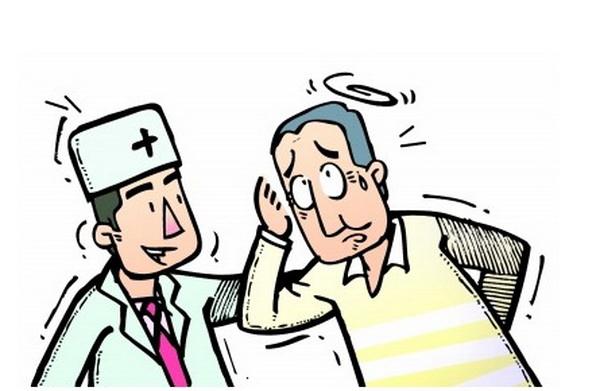Contrary to popular opinion, vertigo is not the same thing as dizziness or feeling light headed. Experts say that vertigo is a feeling that things around you are moving and spinning while you are standing absolutely still. Sometimes the surroundings may move horizontally and sometimes even vertically. Vertigo can affect your balance and you may find it harder to move around than if you just felt dizzy. Depending on the severity of the symptoms, vertigo can prevent you from carrying out your daily routine. A bout of vertigo can last for from anywhere between a few minutes to hours and sometimes even days.
Typical symptoms of vertigo include lightheadedness, a feeling of everything spinning or moving around you, a lack of balance leading to problems walking and standing, nausea, vomiting, earache, and blurred vision.
The two most common causes of Vertigo are labyrnthitis and Meniere's Disease. The labyrinth is the collection of canals in the inner ear and these cavities and canals are responsible for our sense of balance. Labyrinthitis is caused by a viral infection such as a fever or a cold that spreads to the labyrinth. Sometimes a bacterial infection may also affect this part of the ear though this is less common. Vertigo brought on by labyrnthitis is triggered off by the fluctuations of fluid in the inner ear when the head or body moves. A feeling of fatigue, ill health, and nausea normally follows this. You may also suffer from an earache and fever. If you suffer from Meniere's disease, the semi-circular canals within your inner ear function improperly. Tinnitus, nausea, vomiting, and vertigo are all symptoms of this disease. It can also lead to hearing loss in the affected ear that can progress to a permanent hearing loss if not treated promptly.

Vertigo
There is a condition that causes an inflammation of the vestibular canals in the inner ear called Vestibular neuritis. Since the vestibular canals control your sense of balance along with your brain, this inflammation of the vestibular nerve can cause reactions such as vertigo. Unlike the symptoms of Meniere's disease, people with vestibular neuritis do not suffer from hearing loss or tinnitus. There is another type of vertigo called Benign paroxysmal positional vertigo (BPPV). Occurring mostly in older patients, BPPV can also be caused if there was any head trauma, severe infection of the ear or eyes, or if the patient has been lying down for too long post an accident or a surgery.
Along with the vestibular and semi-circular canals in the inner ear, there are also also tiny organs in the inner ear called the otolith organs that control our head movements. There are crystals in the otolith organ that are super sensitive to any movements in the head. Sometimes if there has been an injury to the head or the patient has been lying down for too long, these crystals can move into inner ear canals and increase the sensitivity to any change in head movements. This can lead to symptoms of vertigo. However, most attacks of BPPV disappear in a few days and the condition tends to fade over time.
Vertigo can also be caused by a head injury. If you have received a blow to your head or fallen down and injured your head, you may suffer from light headedness or vertigo. If this immediately follows your injury, contact your doctor as soon as possible. Severe migraines can bring about symptoms of vertigo. Along with blurred vision, sensitivity to light, and severe pain, some patients also complain of vertigo and dizziness during their migraine attacks. Conditions of the ear such as Chronic Otitis Media and Acoustic Neuroma can lead to mild symptoms of vertigo as well. Both these conditions are concerned with the capability of the inner ear to monitor our balance. In Chronic Otitis Media, a ear infection affects the balance while in Acoustic Neuroma, the presence of a benign tumor on the acoustic nerve in the inner ear can result in vertigo symptoms.
Other factors such as dehydration, certain medications, and motion sickness can aggravate symptoms of vertigo. These could be caused due to a drop in blood pressure that can affect our sense of balance. One of the strangest causes of vertigo is an earthquake. Often people who have witnessed a large earthquake report that they still have the sensation of the earth moving even days and weeks later. Vertigo may also be caused by any condition that affects your brain. These could include excessive alcohol consumption, epilepsy, heat stroke, insulin fluctuations, stroke, any trauma or infection to the head, and oxygen deficiency.

![Diseases, Symptoms, tcm, [tcmwindow.com]](/uploadFile/adImg/2015/11/11/f5cbfcc0-4df5-4646-9b9a-f316651a0199.jpg)





